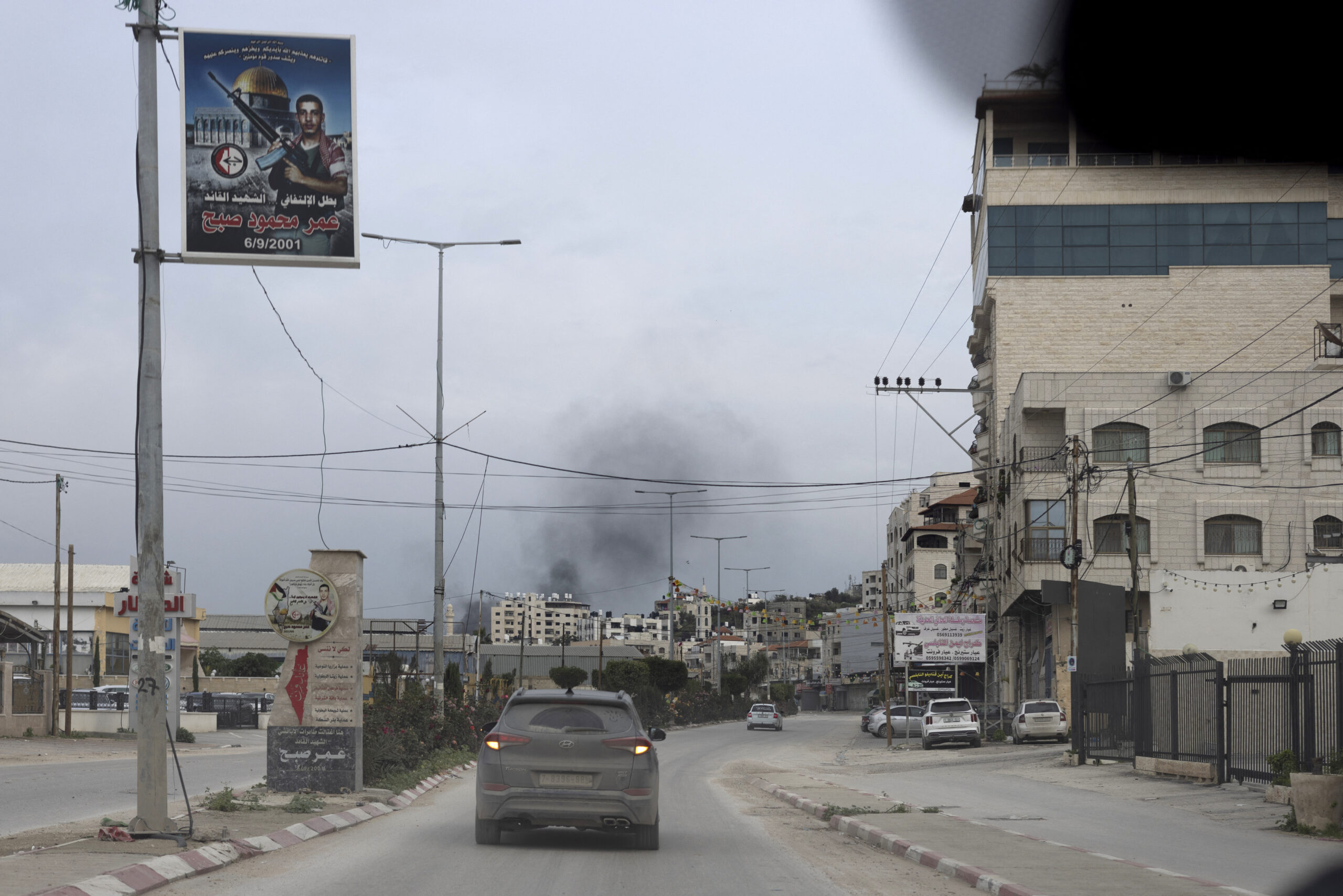The Israeli Army claimed to have killed a leader of the Palestinian group Hamas in an attack it launched against the Tulkarem refugee camp, in the occupied West Bank, in which at least 18 people died, according to figures from the Palestinian Ministry of Health.
The Palestinian news agency Wafa reported that Israeli planes bombed a cafe and that 18 people were killed in the attack.
Other prominent Hamas members died
According to the Army, in the bombing, carried out in coordination with the Israeli national intelligence service (Shin Bet), the Hamas leader in Tulkarem, identified as Zahi Yaser Abdel Razaq Awfi, and “other prominent members” of the Hamas group, considered an organization, were killed. terrorists by several countries.
According to the Palestinian agency, a missile hit a popular cafe located in Al Hamam alley, in the Tulkarem refugee camp.
The Army maintains that Awfi was planning to carry out a “terrorist operation” inside Israel “imminently.”
Hamas leader preparing “terrorist operations”
In a statement, the Army details that Awfi had prepared and directed a car bomb attack in the Atara area on September 2 and that he planned to “carry out several other major terrorist operations” in the West Bank and inside Israel.
In Tulkarem alone, at least 94 Palestinians have died since January 2024, including eight minors aged 15 and 17, according to EFE monitoring.
Shortly before the attack in Tulkarem, the Lebanese Ministry of Health reported the death of 37 people in Israeli bombings in southern and eastern regions of Lebanon, which also left at least 151 injured.
Dozens killed in attacks
The highest number of fatalities was recorded in the province of Nabatieh (southeast), where 19 people died and 52 were injured in Israeli attacks.
In Beirut, 9 people died and 24 were injured. In the South region (southwest), 5 people died and 37 were injured, while in the Bekaa (east) and Mount Lebanon (where Beirut is located) two people each died.
The Israeli newspaper Haaretz noted that the airstrikes in Beirut targeted a Hezbollah bunker used by senior officials.
For its part, The Times of Israel newspaper indicated that the target of this Thursday’s bombings was the cleric Hashem Safi al Din, who last weekend was mentioned by media outlets in the region as the probable successor of whoever was the top leader of the Shiite militia Hezbollah, Hasan Nasrallah, killed in an Israeli bombing on September 27.
The Israeli Defense Forces (IDF) have not yet confirmed whether any of Thursday’s bombings targeted Safi al Din. One of the attacks hit an area near the Beirut airport.
Israel does not know the location of Safi al Din
On its Telegram channel, Hezbollah assured that Israel lacks certainty about the location of Safi al Din, which is why it is attacking several suspicious areas where it is believed he could be found.
The Israeli Army reported the launch of 230 rockets against Israel by Hezbollah until 11:00 p.m. local time on Thursday (20:00 GMT).
The last series of launches occurred around 8:45 p.m. local time (17:45 GMT), when numerous missiles were detected in the direction of the northern city of Haifa and its surroundings. According to the Army, ten projectiles were intercepted and the rest hit unpopulated areas.
On the other hand, the Israeli Armed Forces also announced that they had killed “one of the leaders (of Hezbollah) of the precision guided missile construction project” which they identified as Mahmoud Yusef Anisi.
Israel attacked 15 Hezbollah targets
In a statement, the Israeli Army reported that it had attacked 15 Hezbollah targets throughout Thursday.
According to the military note, the targets hit included several weapons production and storage centers and “other infrastructure.”
In the midst of the ground offensive, the Israeli Army ordered the evacuation of around twenty towns in southern Lebanon, including the town of Nabatieh, one of the hardest hit by Israeli bombings in recent weeks.
It is the third time that Israeli forces have called for the evacuation of towns in southern Lebanon since the start of the ground incursion on Monday night, September 30.
In all cases Israel has asked civilians to go north of the Awali River, more than 50 kilometers from the border and much further north of the Litani River (30 kilometers), which marks the demilitarized zone designated by the UN after the war of 2006 between Israel and Hezbollah, where there should be no armed presence other than the Lebanese authorities and the United Nations mission in the country (UNIFIL).
Keep reading:
- Israel announces that it killed the head of the Hamas government
- Where is Lebanon’s army as Israel and Hezbollah clash?
- Biden discusses possible attacks on Iranian oil facilities with Israel
